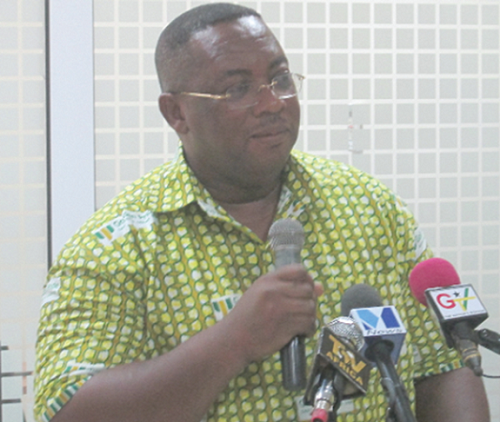
Mineworkers raise red flags - Fault regulators over unconventional methods
The Ghana Mineworkers’ Union (GMWU) of the Trades Union Congress of Ghana (TUCG) has attributed the rise in the use of unconventional mining methods to regulatory lapses in the sector.
Two of such business strategies are ‘contract mining’ and ‘outsourcing’.
Read also: Police confirm arrest of 3 members of gang rapists.
The General Secretary of the GMWU, Mr Prince William Ankrah, at the National Executive Council (NEC) meeting in Accra, said the government must pay particular attention to the situation to ensure that the mining companies planned for strategic growth and expansion.
“Another concern of the union worth the attention of NEC and the stakeholders is the seeming regulatory lapse over the various business models and operational strategies currently being run by some of the companies operating in the industry.
“The intriguing conundrum in the whole issue is that these companies register as mining companies, yet they virtually abdicate their obligations and core responsibilities to third parties with little or no regulatory control and/or scrutiny,” he mentioned.
He indicated that due to that lapse, some of the mining companies failed to do any proper mine planning and strategic exploration for growth and expansion. They over-mine their initial ore bodies with all the aggression, which eventually affect them in the context of sustainable mining practices.
Unconventional mining
According to the GMWU, there is a creeping phenomenon of the adoption of unconventional methods of mining that support short-term profiteering motives of the multinationals in the industry with long-term ramifications on the stakeholders, particularly workers and host communities.
While these two business models are not new in the industry, over time, some large-scale companies have developed an insatiable appetite for them and trigger them at the least operational challenge regardless of their implications.
“Key reasons they give for these laissez-faire business models include but not limited to cost containment, restructuring to be lean and efficient and operational turnaround pressures, yet none of these companies has been able to prove the extraordinary gains of these strategies. Indeed, most of them revert back to the norm,” Mr Ankrah indicated.
He said while outsourcing and/or contract mining, mostly technical and operational workers are handed to third party organisations under precarious employment arrangements and conditions. “This gravely affects workers and host communities but on the contrary, huge savings are made by mining companies, leading to reduced earnings by almost 50 per cent emanating from the pressure on the contract mining which companies try to bid at a relatively lower contract pricing to be able win the deals. In such cases, host communities are handed ancillary jobs through third parties under throat-cutting conditions,” he added.
Mr Ankrah explained that these issues in the industry were directly impacting workers and mining communities, hence the need for the government to prioritise them for immediate action, failing which the union would be forced to find solutions by itself.
Developing mining communities
The union, for a while now, has been trumpeting the need for stakeholders to pay special attention to developments in the mining communities, but according to Mr Ankrah, nothing has been done about it.
He observed that in the last two decades, multinationals plundered their natural habitat, all in the name of mining; pulling minerals worth billions, yet the host communities’ share of this wealth has been nothing short of extreme poverty, deprivation, environmental destruction, disease, squalor, lack of economic opportunities to mention but a few.
“What is even hurting the most is the consistent poor town planning with haphazard infrastructure, coupled with no plans for attractive and sustainable jobs, as well as the likelihood of seeing more ghost towns. These infrastructural deficits cannot be allowed to continue and we need to mobilise the communities to exert pressure on the government to rethink mining investment in Ghana,” he asserted.